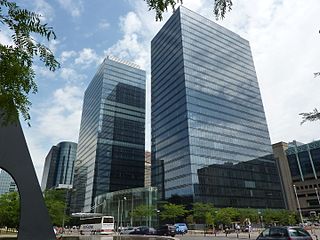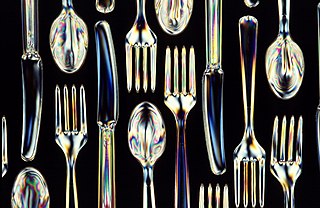Sources
- From the farmer’s field to your compost heap: how bioplastics will reduce waste
- Recommendations for industrial biotechnology
- Country report of Bio-based economy: January 2009 update - page 6 II.A.i
The Belgian Interdisciplinary Platform for Industrial Biotechnology or BIPIB is a Belgian organization which consists of three working groups which come together on biomass supply, bioprocesses and bioproducts, bio-energy. It was founded by Els Van Weert, Flemish secretary for sustainable development and social economy. The BIPIB was given the mission to provide advice for a long-term strategy for developing industrial biotechnology in Belgium.
January 2009 update: The platform is not active and no recommendations were implemented.

Biotechnology is a multidisciplinary field that involves the integration of natural sciences and engineering sciences in order to achieve the application of organisms and parts thereof for products and services.

The economy of Belgium is a highly developed, high-income, mixed economy.
A bio-based material is a material intentionally made, either wholly or partially, from substances derived from living organisms, such as plants, animals, enzymes, and microorganisms, including bacteria, fungi and yeast.
Bio or BIO may refer to:

Biolex Therapeutics was a biotechnology firm in the Research Triangle of North Carolina which was founded in 1997 and raised $190 million from investors. It filed for Chapter 7 bankruptcy on July 5, 2012.

A biorefinery is a refinery that converts biomass to energy and other beneficial byproducts. The International Energy Agency Bioenergy Task 42 defined biorefining as "the sustainable processing of biomass into a spectrum of bio-based products and bioenergy ". As refineries, biorefineries can provide multiple chemicals by fractioning an initial raw material (biomass) into multiple intermediates that can be further converted into value-added products. Each refining phase is also referred to as a "cascading phase". The use of biomass as feedstock can provide a benefit by reducing the impacts on the environment, as lower pollutants emissions and reduction in the emissions of hazard products. In addition, biorefineries are intended to achieve the following goals:

Polyhydroxyalkanoates or PHAs are polyesters produced in nature by numerous microorganisms, including through bacterial fermentation of sugars or lipids. When produced by bacteria they serve as both a source of energy and as a carbon store. More than 150 different monomers can be combined within this family to give materials with extremely different properties. These plastics are biodegradable and are used in the production of bioplastics.

Polylactic acid, also known as poly(lactic acid) or polylactide (PLA), is a plastic material. As a thermoplastic polyester it has the backbone formula (C
3H
4O
2)
n or [–C(CH
3)HC(=O)O–]
n. PLA is formally obtained by condensation of lactic acid C(CH
3)(OH)HCOOH with loss of water. It can also be prepared by ring-opening polymerization of lactide [–C(CH
3)HC(=O)O–]
2, the cyclic dimer of the basic repeating unit. Often PLA is blended with other polymers. PLA can be biodegradable or long-lasting, depending on the manufacturing process, additives and copolymers.

Bioplastics are plastic materials produced from renewable biomass sources. Historically, bioplastics made from natural materials like shellac or cellulose had been the first plastics. Since the end of the 19th century they have been increasingly superseded by fossil-fuel plastics derived from petroleum or natural gas. Today, in the context of bioeconomy and circular economy, bioplastics are gaining interest again. Conventional petro-based polymers are increasingly blended with bioplastics to manufacture "bio-attributed" or "mass-balanced" plastic products - so the difference between bio- and other plastics might be difficult to define.

Biodegradable plastics are plastics that can be decomposed by the action of living organisms, usually microbes, into water, carbon dioxide, and biomass. Biodegradable plastics are commonly produced with renewable raw materials, micro-organisms, petrochemicals, or combinations of all three.
Erik Tambuyzer is a Belgian bio-engineer and businessman. He is Chairman of the Board of the Flemish Center for Medical Innovation (CMI).

Biobased economy, bioeconomy or biotechonomy is economic activity involving the use of biotechnology and biomass in the production of goods, services, or energy. The terms are widely used by regional development agencies, national and international organizations, and biotechnology companies. They are closely linked to the evolution of the biotechnology industry and the capacity to study, understand, and manipulate genetic material that has been possible due to scientific research and technological development. This includes the application of scientific and technological developments to agriculture, health, chemical, and energy industries.

Korea Research Institute of Chemical Technology (KRICT) is the national chemical research institute for the Republic of Korea. It has performed research & development and public infrastructure services in chemistry and related convergence technologies. KRICT was established in 1976 and is a National Research Council of Science & Technology member. It is located at 141, Gajeong-ro, Yuseong-gu, Daejeon.
China has seen double-digit growth in its biotechnology industry and has gone from being one of the slowest to one of the fastest nations in the adoption of new biotechnologies. The biotech sector is seen in China and internationally as a core area of national scientific and economic development. The main national biotech body in the country is the China National Center for Biotechnology Development. The CNCBD is an organization established on November 3, 1983, under the Ministry of Science and Technology with the approval of the State Council. CNCBD is the sole national center to coordinate and implement the national S&T program in Biotechnology and Health.
Bioproducts or bio-based products are materials, chemicals and energy derived from renewable biological material.

The Hyundai Blue-Will is a plug-in petrol-electric hybrid concept compact car designed by the South Korean car manufacturer Hyundai Motor Company. The vehicle was debuted at the 2009 Seoul Motor Show in South Korea.
Bioproducts engineering or bioprocess engineering refers to engineering of bio-products from renewable bioresources. This pertains to the design and development of processes and technologies for the sustainable manufacture of bioproducts from renewable biological resources.
BioTork is a biotechnology company founded in 2008 that specializes in the optimization of industrial fermentation processes. BioTork provides robust microorganisms that are able to convert low-value, raw carbon sources such as agroindustrial by-products and waste into high-value chemical commodities. These biochemical commodities such as omega-3 oil, lipids, fuels, enzymes, plastics and other compounds are derived from renewable feedstock using a continuous culture technology.

The Biotechnology Innovation Organization (BIO) is the largest advocacy association in the world representing the biotechnology industry. It was founded in 1993 as the Biotechnology Industry Organization from a merger of the Industrial Biotechnology Association (IBA) and the Association of Biotechnology Companies (ABC), and changed its name to the Biotechnology Innovation Organization on January 4, 2016. Biotechnology Innovation Organization serves more than 1,100 biotechnology firms, research schools, state biotechnology centers and related associations in the United States and in more than 30 other countries.

Synthetic microbial consortia or Synthetic microbial communities are multi-population systems that can contain a diverse range of microbial species, and are adjustable to serve a variety of industrial, ecological, and tautological interests. For synthetic biology, consortia take the ability to engineer novel cell behaviors to a population level.